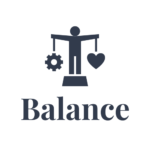Last Updated on January 7, 2025 by Treana Wunsch
Many business owners don’t realize they can deduct medical expenses from their business income.
Let’s face it—running a small business is no joke. Between managing clients, balancing books, and handling day-to-day chaos, it’s easy to let things like tax planning take a back seat. But when it comes to health insurance and medical expenses, understanding what you can deduct is a game-changer.
As a business owner in Canada, you’ve got some solid opportunities to save on taxes by claiming health-related costs. Whether it’s premiums for your health insurance plan, out-of-pocket medical expenses, or both, these deductions help reduce your taxable income. And less taxable income? That means more money staying in your pocket, where it belongs.
Let’s break it down. If you’re self-employed, in a partnership, or incorporated, the CRA has different rules for how you can handle health expenses. For example, self-employed individuals can deduct health insurance premiums directly from their business income, while partnerships and corporations can often deduct them as business expenses. Even if you’re not using a health insurance plan, out-of-pocket medical costs like prescriptions, dental work, or therapy can be claimed through the Medical Expense Tax Credit (METC)—as long as you meet the CRA’s thresholds.
Imagine this: you’re a small business owner who spent $3,500 on a mix of health insurance premiums and medical bills this year. Without these deductions, you’re paying taxes on the full amount of your business income. But by claiming these expenses, you’ve effectively lowered the amount of income the CRA taxes you on. Over time, that adds up to some serious savings.
Here’s why this matters: health-related costs are going up, and every dollar you save on taxes is a dollar you can reinvest in your business—or spend on yourself (because, let’s face it, you’ve earned it).
My advice? Don’t wait until tax season to figure this out. Start tracking your health expenses now. Keep receipts, organize your records, and make sure you’re up to date on what qualifies as a deduction. And if you’re feeling unsure about anything, get a good accountant on your team—they’ll help you maximize those savings.
Running a business is tough, but smart tax strategies can make it a little easier. Health insurance deductions are one of those underrated benefits that can help you work smarter, not harder.
Tuesday Takeaways Newsletter
Deduct Medical Expenses for Self-Employed Individuals
Alright, let’s dive into what being self-employed means when it comes to health insurance and medical expenses. You’re already managing everything—clients, invoices, taxes—and let’s be real, it’s easy to overlook something like health-related tax deductions. But let me tell you, this is one area you don’t want to miss out on.
Here’s the good news: if you’re self-employed in Canada, you can deduct the cost of your health insurance premiums. That’s right—whether it’s for you, your spouse or common-law partner, or your dependents, these expenses can reduce your taxable income. The key is that the plan you’re paying into has to qualify under CRA rules, meaning it’s a plan designed solely for health-related costs like medical, dental, or vision care.
Let’s say you’re a freelance writer who spent $3,000 this year on health insurance premiums. That $3,000 gets deducted directly from your business income. It’s not just a tax credit; it’s a full-on deduction, which means you’re paying taxes on $3,000 less income. And in this business, every dollar counts.
But what about all the stuff that isn’t covered by your plan? This is where the Medical Expense Tax Credit (METC) comes in. If you’ve had out-of-pocket expenses—like prescriptions, dental work, or therapy—you can claim those too, as long as your total expenses exceed the CRA’s threshold. That’s 3% of your net income or $2,635, whichever is less. So, if you had $4,000 in uncovered medical bills on top of your premiums, you could claim a chunk of that through the METC.
Now, I know what you’re thinking—this sounds complicated. But it doesn’t have to be. Keep your receipts for everything, track what you’re spending, and don’t be afraid to ask a tax pro to make sure you’re getting all the deductions you’re entitled to.
Look, being self-employed is hard work, and you deserve to make the most of the benefits out there for people like us. Whether it’s premiums, out-of-pocket costs, or a mix of both, these deductions can help you keep more of what you’ve earned. And honestly, isn’t that the goal?
RELATED ARTICLE: The 7 most common fears of starting a business and how to get past them
Deduct Medical Expenses for Business Partnerships
Alright, let’s talk partnerships. If you’re running a business with a partner or two, you’ve probably already figured out how to share the workload and keep things moving. But when it comes to covering health expenses, there are a couple of ways to handle it that could save you some serious money.
The first option is setting up a Private Health Services Plan (PHSP). PHSPs aren’t like traditional health insurance where you pay monthly premiums. Instead, they’re a reimbursement system. The partnership allocates a set amount of money to cover medical, dental, and vision expenses for the partners, their families, and any employees. You submit your receipts, and the plan reimburses you.
Why is this a win? Because the business gets to deduct the reimbursements as a business expense, and you don’t have to report them as personal income. It’s a tax-free way to take care of health costs. Let’s say you and your partner allocate $10,000 for a PHSP. You use $4,000 for dental work, and your partner spends $3,500 on prescription glasses and therapy. The $7,500 total is fully deductible for the business, and neither of you gets taxed on the reimbursement. Pretty sweet, right?
Now, if a PHSP doesn’t quite fit your needs—or you want more predictable coverage—you can also look into purchasing traditional health insurance as a partnership. This would involve paying monthly premiums for a plan that covers health, dental, and sometimes vision care.
Here’s how it works: If the partnership pays the premiums, those costs can be deducted as a business expense. However, the CRA requires you to include the premium amounts in your personal taxable income as a benefit. Don’t let that scare you, though—you may still be able to deduct the premium on your personal tax return under eligible health expenses.
For medical expenses that aren’t covered by your PHSP or insurance plan, you’ve got another option: the Medical Expense Tax Credit (METC). This covers costs like therapy, prescriptions, specialized treatments, or even travel for medical purposes. The key is that your total out-of-pocket expenses need to exceed 3% of your net income or $2,635 (whichever is less). So, if you paid for a physiotherapist or bought some medical equipment that wasn’t reimbursed, don’t forget to claim those. Every little bit adds up when it comes to cutting your tax bill.
The key is to stay organized: keep your receipts, track your expenses, and make sure your partnership agreement outlines how health costs will be managed.
Running a business is all about finding smart ways to manage your money. Whether you go with a PHSP, buy health insurance, or use a combo of both, you’ve got options to protect your health and your bottom line. Don’t sleep on it—get those deductions working for you!
YOU MAY ALSO ENJOY: Smart Tax Planning for Small Business Owners: 7 Tax Tips to Consider That Will Put Money Back in Your Pocket Next Year
Get 80% off Quickbooks Online
Incorporated Businesses
If you’re running an incorporated business, congrats—you’ve unlocked a whole new level of tax-saving opportunities, especially when it comes to health insurance and medical expenses. Incorporation comes with a few extra hoops to jump through, but the perks? Totally worth it.
A major win for incorporated businesses in Canada is that your company can pay for health insurance premiums as a business expense. That means if your corporation offers health benefits to employees—and yes, that includes you as the owner—those premiums are fully deductible. Plus, the best part? These health benefits are considered a non-taxable benefit for employees, which means you’re not paying additional personal tax on them.
Let’s say you run a small incorporated construction company. You decide to set up a health insurance plan that costs the business $6,000 a year to cover you and your family. That $6,000 is deducted as a business expense, lowering your corporation’s taxable income. And because it’s a non-taxable benefit for you personally, you don’t have to include it in your own income. Boom—tax savings on both sides.
But wait, there’s more. If your business is a bit smaller or you prefer more flexibility, you can also set up a Private Health Services Plan (PHSP). With a PHSP, your corporation reimburses you for eligible medical expenses, and those reimbursements are fully deductible for the business while staying tax-free for you. Think dental work, vision care, or even physiotherapy. You get the coverage you need without taking a hit at tax time.
Now, what about medical expenses that your plan doesn’t cover? That’s where the Medical Expense Tax Credit (METC) comes in. If you have additional out-of-pocket costs—like certain medications, specialized treatments, or even travel for medical care—you can claim those on your personal tax return, provided they exceed 3% of your net income or $2,635 (whichever’s less).
The bottom line? Incorporation gives you more ways to reduce taxes while keeping you and your family covered. Whether you go with a traditional health insurance plan or a PHSP—or even combine the two—you’ve got options. Just make sure you’re keeping detailed records and working with a tax pro to ensure you’re maximizing every deduction available.
Running an incorporated business comes with its challenges, but smart tax planning can make a huge difference. Don’t leave money on the table—use these health insurance strategies to protect both your finances and your peace of mind.
Deducting Other Medical Expenses
Now, let’s talk about the stuff your health insurance plan or PHSP doesn’t cover. Because let’s face it—there’s always something, right? Whether it’s specialized treatments, prescription drugs, or even the cost of getting to a medical appointment in another city, those expenses can add up fast. The good news? A lot of them can still be claimed through the Medical Expense Tax Credit (METC).
Here’s how it works: if your out-of-pocket medical costs exceed 3% of your net income or $2,635 (whichever is less), you can claim the excess as a tax credit. It’s not a deduction, so it won’t lower your taxable income, but it does reduce the amount of taxes you owe—which, let’s be honest, is just as good.
Let’s say you had $4,500 in medical expenses this year. That includes dental work, a new pair of glasses, and some therapy sessions your insurance didn’t fully cover. If your net income was $50,000, you’d subtract 3% of that ($1,500) from your total expenses. The remaining $3,000 would qualify for the METC.
And it’s not just about the basics. You can claim things like fertility treatments, mobility aids, or even renovations to your home if they’re medically necessary. The CRA has a whole list of eligible expenses, so it’s worth checking out to make sure you’re not missing anything.
The key here is to keep track of everything. Save receipts, invoices, and any documentation from healthcare providers. And if you’re unsure whether something qualifies, just ask a tax professional—they’ve got your back.
Bottom line? Even if your plan doesn’t cover it, the METC can help take the sting out of those extra costs. So, don’t leave money on the table—every bit counts.
My favourite digital tools for small business
Common Mistakes to Avoid
Let’s be real—tax stuff can get messy, especially when it comes to health insurance and medical expenses. But making mistakes here can cost you big time, whether it’s in missed deductions or trouble with the CRA. So, let’s break down some common pitfalls and how to steer clear of them.
First up, mixing personal and business expenses. If you’re self-employed or in a partnership, it’s tempting to lump everything together, but that’s a huge mistake. Keep your personal and business health costs separate, and only claim what’s eligible.
Next, not tracking your expenses properly. Whether it’s forgetting to save receipts or losing track of what you’ve spent, poor record-keeping can mean missed deductions. Pro tip: set up a simple system for storing receipts—digital or physical, whatever works for you—and update it regularly.
Another common issue? Assuming everything is deductible. Not all medical expenses qualify under CRA rules, so don’t just throw random costs into your claim. Take the time to check the CRA’s list of eligible expenses or work with a tax pro to make sure you’re doing it right.
Finally, there’s missing the claim window for the METC. The CRA lets you claim eligible expenses for any 12-month period ending in the current tax year. That means you can include medical expenses from late last year if they fit into the 12-month window. But be careful—you can’t claim the same expense twice in different years, so plan strategically and keep your records clear.
Mistakes happen, but they don’t have to. By staying organized and informed, you’ll make sure you’re getting the full benefit of those health-related tax breaks.
Tips for Staying Compliant when You Deduct Medical Expenses From Your Business Income
When it comes to health insurance and medical expenses, staying on top of things is the name of the game. Here are some quick tips to make sure you’re compliant with CRA rules and squeezing every dollar out of your deductions.
Keep Detailed Records: Save all receipts, invoices, and supporting documents for any health-related expenses. Whether it’s for a PHSP, health insurance premiums, or out-of-pocket costs, you’ll need these if the CRA ever asks questions.
Separate Business and Personal: If you’re self-employed or in a partnership, make sure your business and personal health expenses are clearly separated. Use different accounts if you can—it’ll save you a headache later.
Stay Updated: CRA rules can change, so make it a habit to review what’s eligible each year. Don’t assume last year’s deductions will work the same way this year.
Leverage Technology: Use accounting software or apps to track your expenses in real time. Many tools let you scan and upload receipts directly, so you’re not scrambling to find them when it’s tax time.
Plan Ahead: If you know you’ll have big medical expenses, time them strategically. For example, try to group expenses into one year to exceed the METC threshold and maximize your credit.
- Work with a Professional: Taxes can get complicated fast, especially when it comes to medical deductions. Hiring a bookkeeper to manage the expense tracking and keep the business compliant is a game changer. Not to mention, an accountant or tax advisor who knows the ins and outs of CRA rules can help you avoid mistakes and maximize your savings.
Tax savings aren’t automatic—you’ve got to work for them. But with a little effort (or some hired help) and some smart planning, you can stay compliant, save money, and keep more of what you’ve earned.










